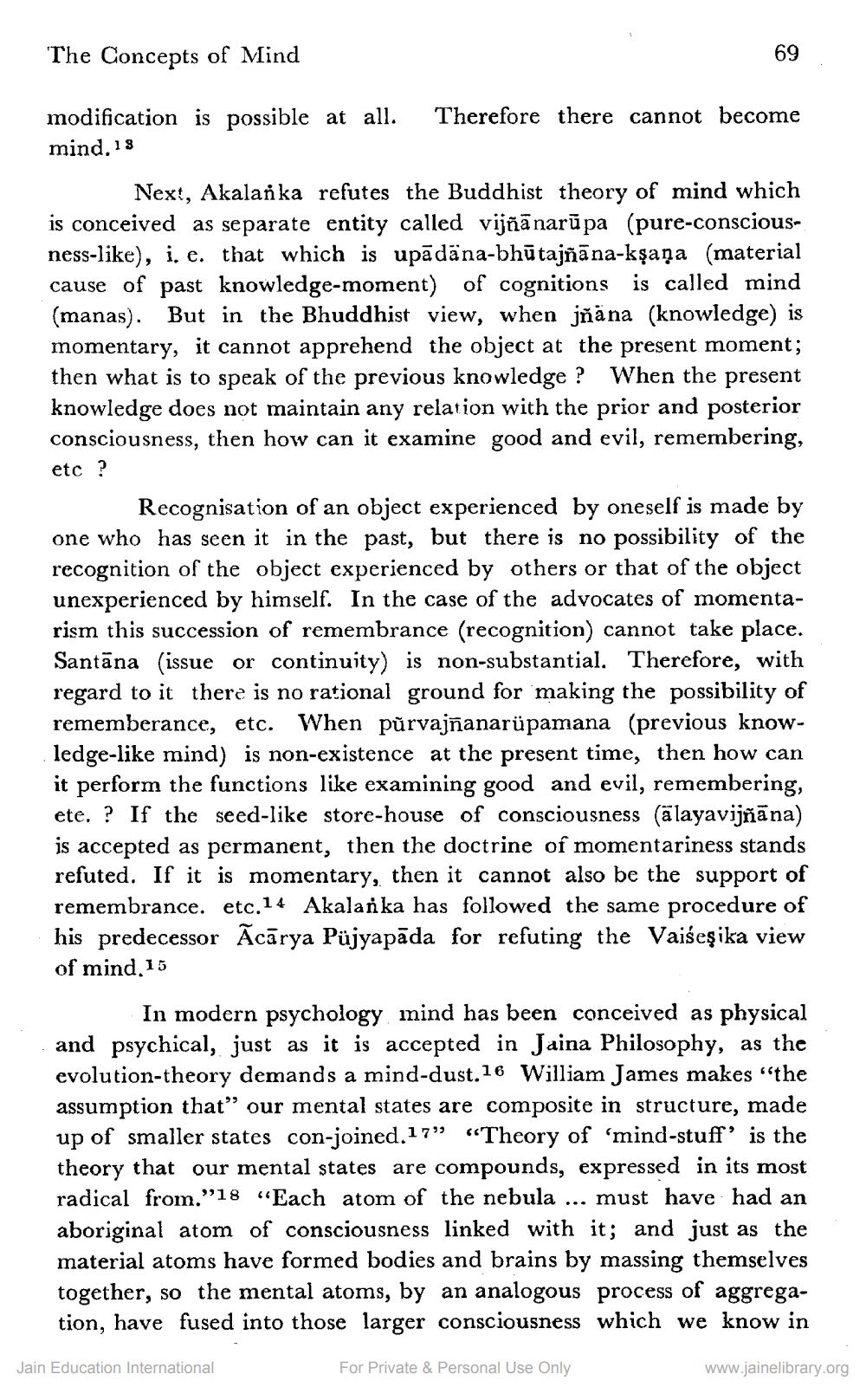________________
The Concepts of Mind
69
modification is possible at all. mind, 18
Therefore there cannot become
Next, Akalanka refutes the Buddhist theory of mind which is conceived as separate entity called vijñānarūpa (pure-consciousness-like), i. e. that which is upādäna-bhūtajñāna-kşaņa (material cause of past knowledge-moment) of cognitions is called mind (manas). But in the Bhuddhist view, when jñäna (knowledge) is momentary, it cannot apprehend the object at the present moment; then what is to speak of the previous knowledge ? When the present knowledge does not maintain any relation with the prior and posterior consciousness, then how can it examine good and evil, remembering, etc ?
Recognisation of an object experienced by oneself is made by one who has seen it in the past, but there is no possibility of the recognition of the object experienced by others or that of the object unexperienced by himself. In the case of the advocates of momentarism this succession of remembrance (recognition) cannot take place. Santāna (issue or continuity) is non-substantial. Therefore, with regard to it there is no rational ground for making the possibility of rememberance, etc. When pūrvajñanarüpamana (previous knowledge-like mind) is non-existence at the present time, then how can it perform the functions like examining good and evil, remembering, ete. ? If the seed-like store-house of consciousness (älayavijñāna) is accepted as permanent, then the doctrine of momentariness stands refuted. If it is momentary, then it cannot also be the support of remembrance. etc.14 Akalanka has followed the same procedure of his predecessor Ācārya Pujyapāda for refuting the Vaišeşika view of mind. 15
In modern psychology mind has been conceived as physical and psychical, just as it is accepted in Jaina Philosophy, as the evolution-theory demands a mind-dust.16 William James makes "the assumption that” our mental states are composite in structure, made up of smaller states con-joined.17” “Theory of ‘mind-stuff' is the theory that our mental states are compounds, expressed in its most radical from."18 “Each atom of the nebula ... must have had an aboriginal atom of consciousness linked with it; and just as the material atoms have formed bodies and brains by massing themselves together, so the mental atoms, by an analogous process of aggregation, have fused into those larger consciousness which we know in
Jain Education International
For Private & Persona For Private & Personal Use Only
www.jainelibrary.org




